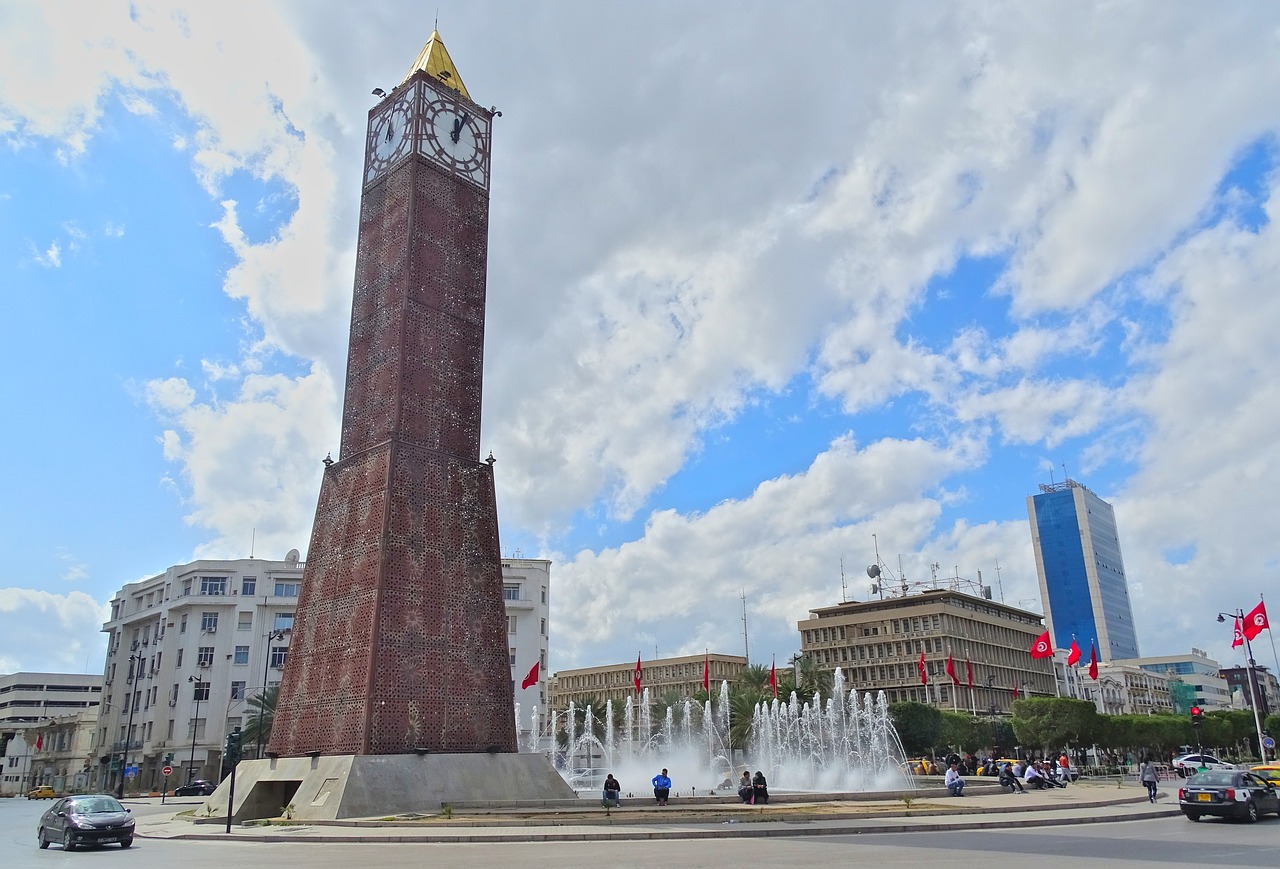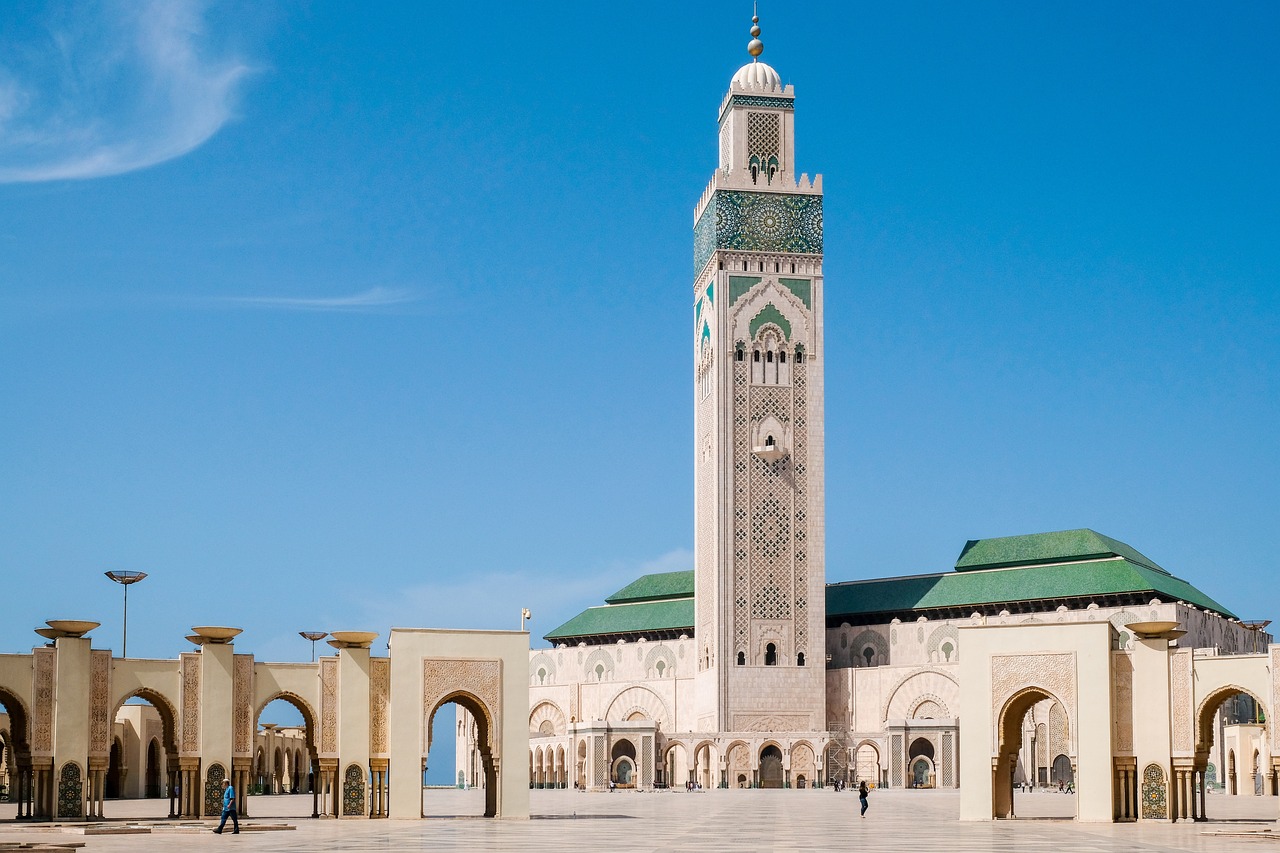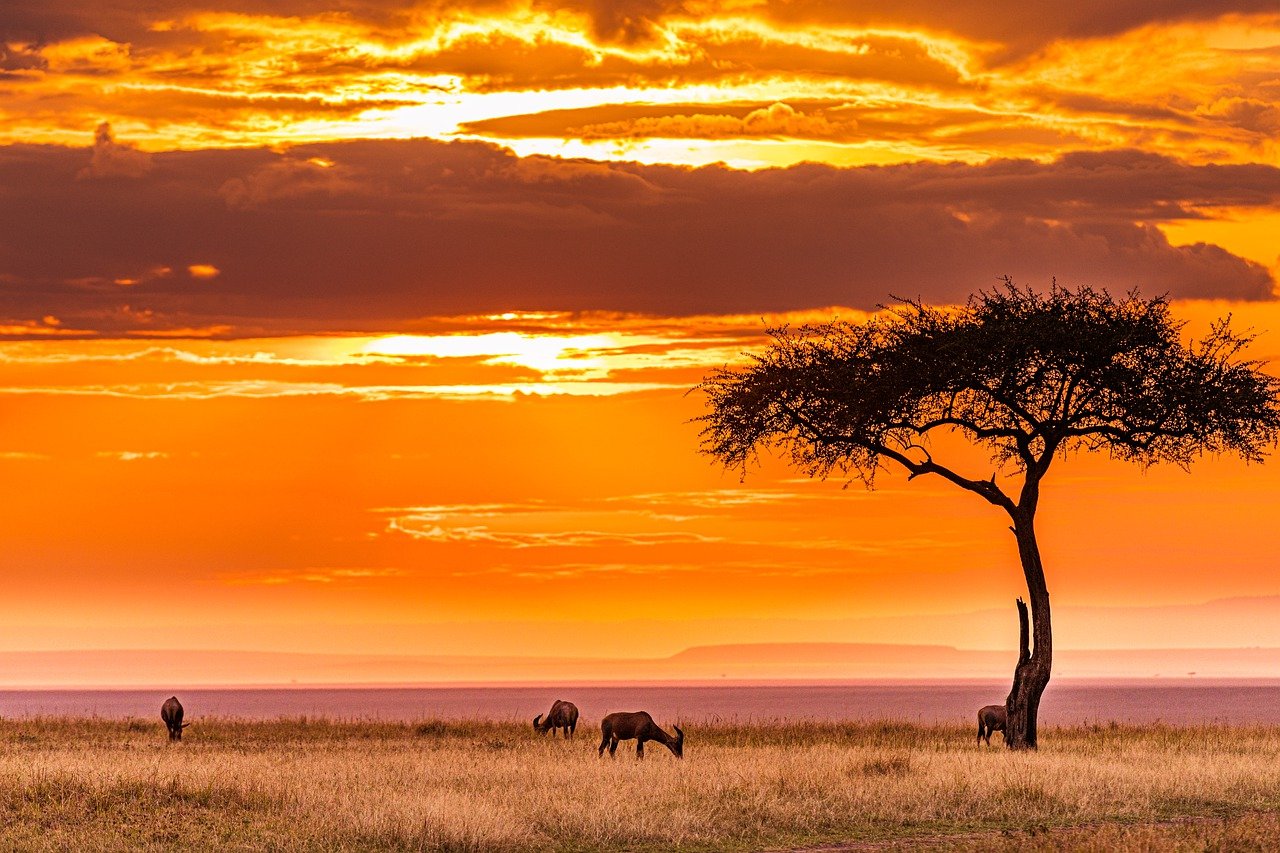Tunis is the capital and largest city of Tunisia, a North African country located on the Mediterranean Sea. The city is situated in the northeast of the country and serves as the political, economic, and cultural center of Tunisia. Tunis is known for its rich history and diverse cultural heritage, which is reflected in its architecture, cuisine, and traditions. The city is home to several important landmarks and attractions, including the ancient city of Carthage, the Bardo Museum, and the Medina of Tunis, a UNESCO World Heritage site.
Short History
Tunis has a long and complex history, with evidence of human settlement dating back to ancient times. The city was originally founded by the Berbers in the 2nd millennium BCE and later became a Phoenician colony known as Carthage. In the 7th century CE, Tunis was conquered by Arab Muslims and became an important center of Islamic civilization.
Throughout the centuries, Tunis was ruled by various empires and dynasties, including the Ottoman Empire, the French, and the modern Tunisian government. In the 20th century, Tunis played a key role in the struggle for Tunisian independence, which was achieved in 1956.
Today, Tunis is a bustling and vibrant city that is rich in culture and history. Its ancient ruins, medieval architecture, and modern developments are a testament to the city’s diverse and dynamic past.
Architecture
Tunis is known for its diverse architecture, which reflects the city’s rich cultural and historical heritage. Here are some examples of the city’s architectural styles:
- Islamic Architecture – Tunis is home to several stunning examples of Islamic architecture, including the Great Mosque of Tunis, which dates back to the 9th century CE. The mosque features intricate tilework, domed roofs, and horseshoe arches.
- French Colonial Architecture – Tunis was a French colony for much of the 20th century, and the city features several examples of French colonial architecture, such as the Cathedral of St. Vincent de Paul and the Bab Saadoun Arch.
- Moorish Architecture – Tunis features several examples of Moorish architecture, including the Dar Ben Abdallah Museum and the Ksar Said Palace. These buildings feature ornate tilework, carved plaster, and intricate wooden ceilings.
- Arab-Andalusian Architecture – This architectural style is characterized by its use of horseshoe arches, domed roofs, and intricate tilework. Examples of this style can be found throughout the Medina of Tunis, including the Dar Hussein Palace and the Sidi Ben Arous Mosque.
Overall, the architecture of Tunis is a reflection of the city’s diverse cultural and historical influences, and offers a unique and fascinating glimpse into the city’s past and present.
Museums and Galleries
Tunis is home to several fascinating museums and galleries that offer a glimpse into the city’s rich cultural and historical heritage. Here are some of the most interesting museums and galleries to visit in Tunis:
- Bardo Museum – This museum is home to one of the largest collections of Roman mosaics in the world, as well as a range of artifacts from Tunisia’s diverse history.
- National Museum of Bardo – This museum features a range of exhibits that showcase Tunisia’s cultural heritage, including Islamic art, ancient artifacts, and ethnographic displays.
- Dar Ben Abdallah Museum – This 18th-century palace has been converted into a museum that showcases traditional Tunisian arts and crafts, including pottery, textiles, and metalwork.
- Museum of Contemporary Art – This museum features a range of modern and contemporary artworks by Tunisian and international artists, including painting, sculpture, and photography.
- Museum of Popular Arts and Traditions – This museum features exhibits that showcase the traditional lifestyles, customs, and traditions of Tunisian culture, including clothing, furniture, and household items.
- Carthage Museum – This museum is located in the heart of the ancient city of Carthage and features a range of exhibits that showcase the history and culture of the city, including artifacts from the Punic and Roman periods.
These museums and galleries offer a rich and diverse range of cultural and artistic experiences, and are a must-visit for anyone interested in learning more about the history and culture of Tunis.
Landmarks and Monuments
Tunis is home to several fascinating landmarks and monuments that showcase the city’s rich cultural and historical heritage. Here are some of the most interesting landmarks and monuments to visit in Tunis:
- Medina of Tunis – This UNESCO World Heritage site is the historic center of Tunis and features winding alleyways, traditional souks, and historic buildings.
- Carthage – This ancient city was once one of the most important in the Mediterranean world, and today features a range of historic ruins, including the Punic Port and the Roman amphitheater.
- Zitouna Mosque – This mosque is one of the oldest and most important in Tunisia, and features a range of architectural styles, including Roman, Islamic, and Ottoman.
- Bardo Palace – This palace was once the residence of the Tunisian royal family and today houses the Bardo Museum.
- Sidi Bou Said – This picturesque village features traditional white-and-blue buildings, narrow streets, and stunning views of the Mediterranean Sea.
- Habib Bourguiba Mausoleum – This mausoleum is the final resting place of Habib Bourguiba, the first president of Tunisia after independence.
These landmarks and monuments offer a glimpse into the diverse and fascinating history of Tunis and are a must-visit for anyone interested in learning more about the city’s cultural heritage.
Parks and Green Spaces
Tunis is home to several beautiful parks and green spaces that offer a peaceful respite from the hustle and bustle of the city. Here are some of the most interesting parks and green spaces to visit in Tunis:
- Belvedere Park – This park features lush greenery, a small lake, and a range of exotic plants and trees, and is a popular spot for picnics and relaxation.
- Tunis Zoo – This zoo is home to a range of exotic animals from around the world, including tigers, giraffes, and zebras.
- Sidi Bou Said Hill – This hill offers stunning views of the Mediterranean Sea and the village of Sidi Bou Said, and is a popular spot for hiking and picnicking.
- Jardin d’Essai – This botanical garden features a range of plants and trees from around the world, as well as several historic buildings and monuments.
- Salammbo Beach – This beach is located just outside of Tunis and offers white sand, clear waters, and a range of activities, including swimming, snorkeling, and sunbathing.
- Al-Mansourah Park – This park features a range of activities for children and adults, including a small zoo, a playground, and several picnic areas.
These parks and green spaces offer a peaceful and relaxing escape from the city and are a must-visit for anyone looking to enjoy nature in Tunis.
Shopping Districts
Tunis is a shopper’s paradise, with a range of shopping districts and markets that offer everything from traditional crafts to modern fashion. Here are some of the most interesting shopping districts to visit in Tunis:
- Medina of Tunis – The Medina is home to a range of traditional souks and markets, selling everything from spices and textiles to jewelry and handicrafts.
- Rue Charles de Gaulle – This street in the center of Tunis is known for its high-end shops and boutiques, selling designer clothes, jewelry, and accessories.
- Avenue Habib Bourguiba – This avenue is one of the main shopping districts in Tunis and features a range of shops, cafes, and restaurants.
- Souk El Berka – This covered market in the Medina is known for its textiles, carpets, and traditional clothing.
- La Marsa Souk – This market in the seaside town of La Marsa is a popular spot for souvenir shopping, with a range of handmade crafts and jewelry.
- Ennasr Shopping Center – This modern shopping center features a range of international and Tunisian brands, as well as a cinema and several restaurants.
These shopping districts offer a diverse range of shopping experiences, from traditional souks to modern shopping centers, and are a must-visit for anyone looking to indulge in some retail therapy in Tunis.
Food and Drink
Tunis is known for its flavorful and diverse cuisine, which features a range of spices and ingredients from the Mediterranean and North Africa. Here are some traditional dishes and drinks to try in Tunis:
- Couscous – This dish is a staple of Tunisian cuisine and features steamed semolina served with a range of vegetables, meat, and spices.
- Brik – This pastry is filled with a range of ingredients, such as tuna, egg, and potato, and is usually fried until crispy.
- Lablabi – This dish features chickpeas cooked in a spicy broth and served with bread and harissa, a hot pepper paste.
- Shakshouka – This breakfast dish features eggs poached in a spicy tomato sauce and is served with bread.
- Merguez – These spicy sausages are made from lamb or beef and are often served grilled with bread.
- Mint tea – This sweet tea is a popular drink in Tunisia and is usually served with fresh mint leaves.
- Boukha – This brandy-like spirit is made from figs and is a popular drink in Tunisian bars and cafes.
Tunisian cuisine is flavorful, hearty, and full of spices and herbs, and is sure to delight any food lover visiting Tunis.
Transportation
Tunis is a relatively small city, making it easy to navigate by foot, bike, or public transportation. Here are some of the best ways to move around Tunis:
- Walking – Many of Tunis’ main attractions, such as the Medina and the Bardo Museum, are located within walking distance of each other, making it easy to explore the city on foot.
- Biking – Tunis has several bike rental companies that offer affordable rates and a range of bike options, making it easy to explore the city at your own pace.
- Public Transportation – Tunis has a range of public transportation options, including buses, trams, and metro lines, which are affordable and efficient.
- Taxis – Taxis are readily available in Tunis and are a convenient way to get around the city, although they can be more expensive than other forms of transportation.
- Car Rental – If you’re planning on exploring outside of Tunis, renting a car is a great option, as it offers the flexibility to travel at your own pace and visit more remote areas.
Tunis offers a range of transportation options that are affordable and convenient, making it easy to explore the city and its surrounding areas.
City Safety
Tunis is generally a safe city to visit, with a low crime rate and a strong police presence. However, as with any city, visitors should take common-sense precautions to ensure their safety. Here are some safety tips for visiting Tunis:
- Be aware of your surroundings, especially in crowded areas such as markets and public transportation.
- Keep your valuables, such as your passport and money, in a safe place, such as a hotel safe or a money belt.
- Avoid wearing expensive jewelry or carrying large amounts of cash.
- Follow local customs and dress modestly, especially when visiting religious sites.
- Use reputable taxi companies and agree on a price before getting in the taxi.
- Avoid political demonstrations and large gatherings.
- Be aware of the risk of pickpocketing and bag-snatching, especially in crowded areas.
Overall, by taking simple precautions and being aware of your surroundings, visitors can have a safe and enjoyable trip to Tunis.
Expensive or Cheap
Tunis is generally an affordable destination for travelers, with a lower cost of living than many other European cities. However, prices can vary depending on the type of activity, accommodation, and dining options you choose.
On average, a budget traveler can expect to spend around 30-50 TND (10-17 USD) per day on food, including street food and local restaurants. Accommodation options range from budget hostels to high-end hotels, with prices ranging from 30-200 TND (10-70 USD) per night.
Transportation in Tunis is generally affordable, with taxis and public transportation costing around 1-2 TND (0.30-0.70 USD) per ride. Entrance fees to popular tourist attractions, such as the Bardo Museum, Carthage, and the Medina, are also relatively affordable, with prices ranging from 10-15 TND (3.50-5.20 USD) per person.
While prices in Tunis may not be as cheap as some Southeast Asian destinations, the city is still an affordable and accessible destination for budget travelers.
Date Ideas
Tunis offers a range of romantic and memorable date ideas for couples. Here are some ideas for a romantic date in Tunis:
- Sunset walk in Sidi Bou Said – Stroll through the picturesque village of Sidi Bou Said as the sun sets over the Mediterranean Sea.
- Dinner at a rooftop restaurant – Enjoy a romantic dinner with stunning views of the city skyline at one of Tunis’ rooftop restaurants.
- Horse-drawn carriage ride through the Medina – Take a horse-drawn carriage ride through the winding streets of the Medina for a romantic and unique experience.
- Visit the Bardo Museum – Explore the rich history and culture of Tunisia at the Bardo Museum, and take a stroll through the museum’s beautiful gardens.
- Wine tasting in Sidi Bou Said – Take a tour of a local vineyard and enjoy a wine tasting in the charming village of Sidi Bou Said.
- Relax on Salammbo Beach – Spend a relaxing day soaking up the sun and enjoying the clear waters of Salammbo Beach.
- Sunset at La Marsa Beach – La Marsa Beach offers stunning views of the sunset over the Mediterranean Sea and is a popular spot for picnics and romantic walks.
- Hammam Experience – The traditional hammams of Tunis offer a unique and relaxing experience for couples, with a range of massage and spa treatments available.
- Carthage – The ancient city of Carthage offers a range of historic ruins and stunning views of the Mediterranean Sea, making it a perfect spot for a romantic day trip.
- Explore the Medina – The Medina of Tunis is a UNESCO World Heritage site and offers a range of traditional souks and markets, perfect for a unique and romantic shopping experience.
Tunis offers a range of romantic and memorable date ideas for couples, from strolling through charming villages to enjoying a romantic dinner with stunning views of the city.
Fun and Interesting Facts
Tunis and Tunisia have a rich and fascinating history and culture, with a diverse range of influences from across the Mediterranean and North Africa. From its ancient ruins and historic mosques to its vibrant modern culture and cuisine, Tunis offers a unique and rewarding travel experience for visitors. Here are some fun and interesting facts about Tunis:
- The Bardo Museum in Tunis is home to one of the largest collections of Roman mosaics in the world, with over 8,000 square meters of mosaics on display.
- The Medina of Tunis, a UNESCO World Heritage site, is one of the best-preserved historic Arab-Muslim cities in the world.
- Tunis is known for its traditional handicrafts, such as ceramics, textiles, and metalwork, which are still produced by local artisans today.
- The city is also known for its vibrant music scene, with a range of traditional and modern music styles, including Arab-Andalusian music, jazz, and hip-hop.
- Tunisia is the birthplace of the ancient Carthaginian Empire, which was a powerful Mediterranean civilization that lasted from the 8th century BC to the 2nd century BC.
- Tunis was founded by the Berbers in the 2nd millennium BC, and over the centuries, it has been ruled by various civilizations, including the Phoenicians, Romans, Arabs, Ottomans, and French.
- Tunis is home to the Zitouna Mosque, one of the oldest and most important mosques in Tunisia. It was founded in the 8th century and has been expanded and renovated over the centuries.
- The traditional Tunisian dish, couscous, has been recognized by UNESCO as part of the Intangible Cultural Heritage of Humanity.
- Tunis is located on the Mediterranean Sea and has several beautiful beaches and coastal towns, including the popular tourist destination of Hammamet.
- Tunisia is the second-largest exporter of olive oil in the world, and Tunisian olive oil is known for its high quality and rich flavor.
- The Tunisian desert is home to several important historic sites, including the ancient city of Dougga, the Roman amphitheater of El Djem, and the Kairouan Mosque, one of the holiest sites in Islam.
In conclusion, Tunis is a fascinating city that offers a unique blend of history, culture, and modernity. From its ancient ruins and traditional crafts to its vibrant music scene and modern shopping districts, Tunis has something for everyone. Whether you’re interested in exploring the city’s rich history, trying new foods, or simply enjoying the Mediterranean climate, Tunis is a must-visit destination.



